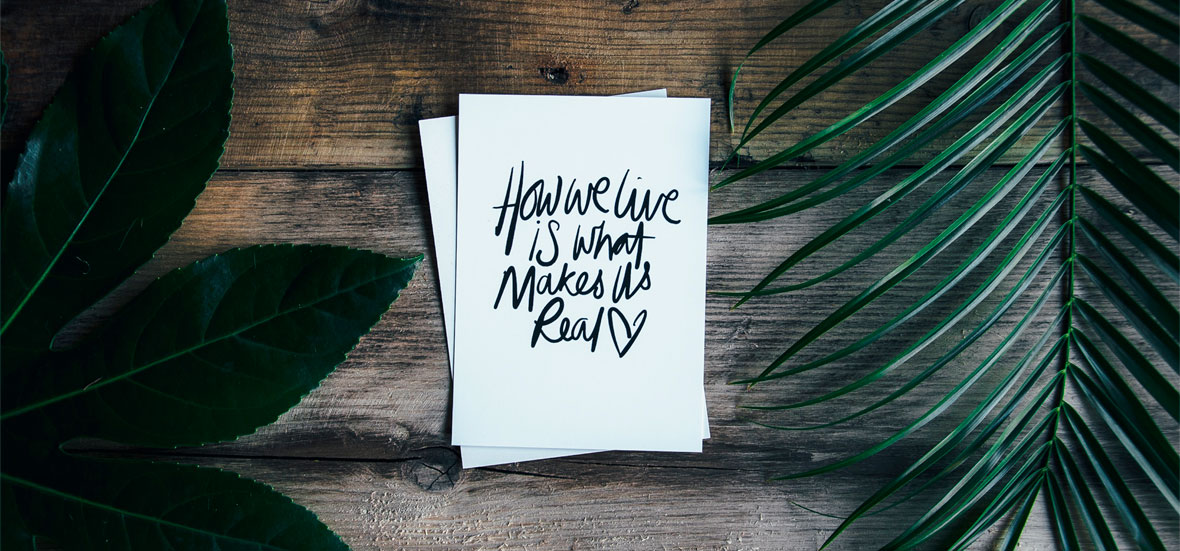Now that quarantine is easing up somewhat, a lot of us are feeling uneasy stepping out into the world again. Despite the previous desperation to do so, we’re feeling hesitant about socializing with friends who may have different social distancing rules, or anxious that our workplaces may not be quite safe for the new normal.
These are natural concerns, and important to address. But the strength of our social and working lives will only be good as the strength of our inner worlds. How well we remember the lessons we’ve been taught over the past few months is critical for our collective journey forward.
As I’ve been reflecting on the events we’re living through, there are three over-arching lessons that stand out for me. Keeping them close to our hearts is what will help us be resilient and courageous in a world that’s vastly different to the one we’ve left behind.
Because the reality is that right now the past has crumbled around us. The lives we’d crafted. The stories we’d built. The structures we’d set up. And we stand in that precarious moment that determines what comes next.
Some of us will give up on life. We’ll sweep the remnants of what once was, shake our heads in cynicism or despair, and watch whatever enfolds with a sense of hopelessness. And helplessness.
Others will try and piece everything back together to its old ways, so we can go back to our bubbles of comfort. If the old ways weren’t working for us, we may try and grab whatever we can get hold of — both reactions of the survival instinct.
But increasingly, we’re seeing the desire to move forward toward a new normal where the fragility of life is underpinned by the strength of the human spirit. And the human spirit comes alive when we stop putting ourselves at the center of our worlds. These three lessons are reminders of how to do so.
Lesson 1: Be Humble
The progress we’ve had ever since we rose to the top of the food chain has fed our inherent need for control and greed for more. And increasingly, we’ve lost sight of what’s ours, and what’s not.
Our ancestors were aware of the privilege of being human, and responsible about giving voice and respect to everything around them. Over the generations, we’re regressed into excited teenagers who believe they’ve figured life out. We’ve shunned old practices, mocked wisdom and spirituality, and locked ourselves in bubbles that reflect our own grandeur back to us.
Until life brings us down to our knees. And we’re sent home to do our inner homework.
Humility is about being grateful for the bounties the world offers freely, because gratitude is an antidote to greed. Only then will we be able to step away from our ego-centered existence, and respect the eco-systems we’ve suffocated along the way. I sometimes wonder whether that’s the reason the pandemic is a disease that curtails our ability to breathe?
Lesson 2: Be Compassionate
We’ve come thus far in our collective journey with a tribal mindset of “us vs them”. We’re able to have compassion for those like us, although that too is giving way to judgment and criticism, because feed our heads over our hearts. And it’s weakening the very muscle that got us here as a humanity.
The interconnectedness of our lives, so evident these past few months, demands that we stretch our human capacity to care for those beyond our immediate “tribes”. That we learn to care for those beyond our families, our organizations, our communities. And indeed beyond our own generations to the ones that come after us.
Like all change, the work begins within us. The greater our capacity for self-compassion, the better we’ll be able to lift the lives of those in whose shoes we may never have walked. The way forward depends on our collective strength. It always has.
Lesson 3: Be Patient
Perhaps the hardest lesson of all. Our emotional brain that wants everything NOW, makes it so difficult to live by the well-meaning intentions of a conscious brain. Tell me you haven’t vowed to be kinder, or gentler, but reacted when the other person didn’t respond as you wanted them to. That you haven’t tried to be more aware of your environmental footprint, but gave up because you couldn’t see the fruits of your labor.
Alas for our short-sightedness, even though we’re perhaps the only species who can look into the past and the future. We have the capability to realize that our world didn’t become like this overnight. Over generations, we stepped steadily away from our truth, adjusting to the slow pace of change. And then we reached a tipping point.
Our job now is to look ahead at the future we want, and have faith that every intentional step is again bringing us closer to a tipping point. One, where the seeds of love we plant today will lead to a better world for our children. Even if we never live to see it.


